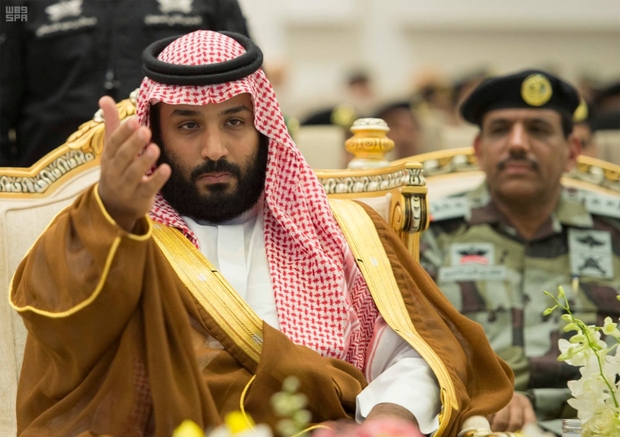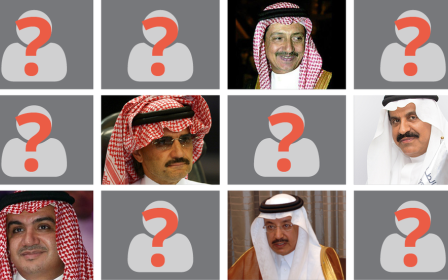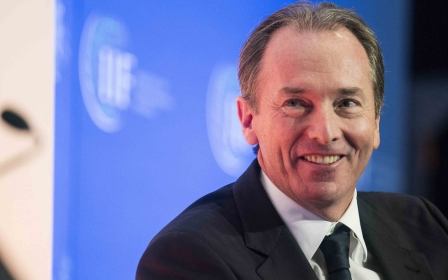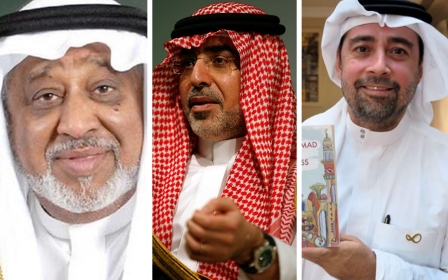Saudi Arabia says 'anti-corruption' campaign ends after netting billions

Saudi Arabia announced it has ended its self-proclaimed crackdown on corruption, which it says has boosted state coffers by more than $100bn. Dozens of the kingdom's most powerful citizens are still detained.
The campaign, launched in November 2017 by Crown Prince Mohammed bin Salman, saw hundreds of elite princes, ministers and businessmen held at the luxury Ritz-Carlton hotel in the Saudi capital Riyadh.
Many were detained for weeks in the hotel, but most were released after agreeing significant financial settlements.
The Saudi government contends that the campaign was a crackdown on rampant corruption in the kingdom, while critics have accused Mohammed bin Salman of using the guise of reform to consolidate his power.
The investigation concluded on Wednesday with the approval of King Salman, according to a statement released by the official Saudi Press Agency.
The statement said authorities had summoned 381 people, some as witnesses, but it provided no names.
It said 87 people confessed to charges against them and reached settlements that included the forfeiture of properties, companies, cash and other assets, with more than 400 billion Saudi riyals ($106bn) recovered by the state.
The public prosecutor refused to settle the cases of 56 people due to existing criminal charges against them.
Eight more who declined settlement offers stand accused of corruption, the court said.
Detainees who were not indicted were freed, but it was unclear when travel bans, bank freezes and electronic monitoring of at least some of those released earlier would end.
The campaign ended as abruptly as it began, despite speculation in the business community that a new round of arrests was imminent.
Detainees tortured
For the first three months of the campaign, many members of the kingdom's economic and political elite were held in the Ritz-Carlton, with some later moved to a prison.
Some detainees were reportedly tortured, which the authorities have denied.
Three of the longest-held detainees rounded up in the Ritz-Carlton were released over the past week, in what analysts have described as a PR push to rehabilitate the kingdom’s reputation among international investors.
Amr Dabbagh, businessman and former head of the Saudi Arabian General Investment Authority, and Hani Khoja, a former McKinsey consultant, were freed last week after 14 months.
Among the last of the more than 200 royals and businessmen arrested to be let go, their release came just as the World Economic Forum, a strong Saudi delegation in attendance, kicked off in Davos.
A Saudi source told Middle East Eye last year that Dabbagh had been tortured, while the Wall Street Journal has reported that Khoja was repeatedly beaten in detention.
Then on Sunday, Mohammed al-Amoudi, a Saudi-Ethiopian tycoon, was released hours before the kingdom launched a bid to attract over $400bn to develop its mining, logistics and manufacturing sectors.
Saudi authorities have not said publicly why the three men were detained or released, nor have the men, now returned to their families, made public statements.
Many of the crown prince's rivals were caught up in the 2017 purge, and a friend of one of the recently freed men, speaking on condition of anonymity, told MEE that they had been told to delete politically critical posts on social media about 10 days before the release.
'Shock therapy'
The 'anti-corruption' campaign unsettled some foreign investors that Mohammed bin Salman had been courting to diversify Saudi Arabia away from its reliance on oil.
The crown prince described the campaign as "shock therapy" for the kingdom's economy.
The October killing of journalist Jamal Khashoggi by Saudi agents inside the kingdom's Istanbul consulate tarnished the crown prince's reputation around the world and intensified criticism of Riyadh's human rights record and its role in the Yemen war.
Mohammed bin Salman's social reforms, including the easing of restrictions such as bans on cinemas and women driving, have been accompanied by a crackdown on dissent, including the arrests of dozens of clerics, women's rights activists and intellectuals.
The figures released on Wednesday were little different from those the government announced in its last update, exactly one year earlier.
It is unclear how much of the money it says was recovered has actually reached state coffers.
Only a month ago, the finance minister told the Reuters news agency that authorities had collected some $13bn from settlements in 2018 and expected a similar amount this year.
The initial sweep netted cousins of Mohammed bin Salman, such as billionaire investor Prince Alwaleed bin Talal, National Guard Minister Prince Miteb bin Abdullah and former Riyadh Governor Prince Turki bin Abdullah.
Miteb was freed within weeks after agreeing to pay more than $1bn to settle corruption allegations against him, a Saudi official said at the time.
Two months later, Alwaleed settled after reaching what he called "a confirmed understanding between me and the government". Turki has not been heard from.
Also detained were senior officials, including ousted economy minister Adel Fakieh, who is believed to be in detention, and former chief of the royal court, Khalid al-Tuwaijri.
Middle East Eye delivers independent and unrivalled coverage and analysis of the Middle East, North Africa and beyond. To learn more about republishing this content and the associated fees, please fill out this form. More about MEE can be found here.




